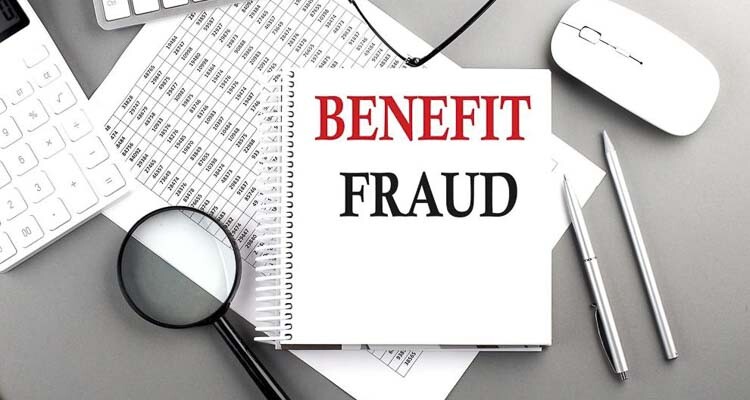
That leaves about 1 percent, approximately $223.4 million, lost to fraud thus far while 99 percent of unemployment benefits went to support workers as intended
Randy Bracht
The Center Square Washington
An innovative legal effort has enabled Washington to recover $42 million originally paid out in fraudulent unemployment claims during the COVID-19 pandemic, state Attorney General Bob Ferguson announced Thursday.
Ferguson said 26 banks, credit unions and other financial institutions across the country cooperated with investigative efforts by his office to locate and return funds deposited by scammers who obtained state and federal unemployment benefits by fraudulent means.
“Our innovative use of the law to recover stolen funds led the nation. We delivered results for taxpayers and unemployed Washingtonians,” Ferguson said in a press statement.
Beginning in April 2020, soon after the pandemic led to business closures and laid-off workers, Washington’s unemployment insurance program was one of the first to suffer “an unprecedented and massive nationwide attack of imposter fraud,” the attorney general’s office said.
Using identity data harvested from breached sources, sophisticated fraud rings stole billions of dollars from 53 government programs that received federal pandemic unemployment benefits, according to a recent government accountability report.
“While the exact extent of the fraud is still unknown, the same report estimated losses to fraud nationally to be as much as $135 billion,” Ferguson’s office said.
Soon after the thefts, in collaboration with Washington’s Employment Security Department, the AG’s Office initiated a search for stolen monies that criminals were unable to withdraw from accounts at banks and other financial institutions, then used the state’s asset forfeiture powers to recover a portion of those taxpayer dollars.
“The Attorney General’s Office will continue to assist in federal investigations to recover stolen funds, as well as investigate any liability of banks and financial technology companies for Washington’s losses,” the press statement said.
All told, Washington’s Employment Security Department estimates that bogus claims accounted for $647 million, or about 3%, of the overall $21.7 billion in unemployment benefits paid to workers during the pandemic. To date, multiple state agencies have recovered more than two-thirds of the stolen funds, some $423.6 million, with the AG’s efforts contributing about 10% of that amount.
That leaves about 1%, approximately $223.4 million, lost to fraud thus far while 99% of unemployment benefits went to support workers as intended, said state officials.
“We’re thankful for our partnership with the Attorney General,” said Employment Security commissioner Cami Feek, “It’s wonderful to see our collaboration and hard work paying off. Fraud recovery has been a long road. However, our collective efforts have made us a leader in fraud recovery nationally and a resource for advice and guidance for other states.”
Officials said other states experienced larger losses to unemployment fraud: Arizona and Virginia, which have similar-sized populations to Washington, respectively lost $4.4 billion and $1.6 billion while California lost $18.7 billion.
According to department data, Employment Security detected fraud within the first two weeks and opted to pause payments, effectively halting more than 100,000 bogus claims. Agency personnel then analyzed data that showed 95% of fraudulent payments went to 75 banks. From there, the department contacted each bank and attempted to recover funds, reaching resolutions on the amounts available to return.
The Attorney General’s Office used the department’s data and subpoenaed more than 35 banks across the country to identify accounts with balances of $1,000 or more that bore red flags or indicators of fraud.
Those indicators included accounts receiving unemployment benefit payments from multiple states, accounts with deposits made to multiple people, or mismatched personal information between the account holder and the person who applied for benefits that were deposited into the account.
Among the 26 financial institutions from which funds were recovered, the largest amount – $9.71 million – was retrieved from Bank of America while the smallest amount of $19,952 was forfeited by the BECU credit union.
The recovered $42 million goes back into the state’s unemployment trust fund.
Within the AG’s office, the recovery effort is led by Special Assistant Attorney General Jeff Sprung in the Complex Litigation Division, along with Assistant Attorneys General Martha Rodriguez Lopez, Spencer Coates, Kendall Scott Cowles, Erica Franklin, John Nelson, Lia Pernell and Nick Quijas; paralegals Sara Cearley and Kellie Tappan; legal assistant Victoria Johnson; and investigator Greg Coleman.
This report was first published by The Center Square Washington.
Also read:
- Stephen Davis brings his message of unity with Turning Point USA presentation in VancouverStephen Davis of Turning Point USA visited Vancouver to share a message of unity and faith with students and families.
- Cardinals elect American pope to lead Catholic churchRobert Francis Prevost becomes the first American elected pope, taking the name Leo XIV following a fourth-round conclave vote.
- Camas Police arrest robbery suspectCamas Police arrested a 19-year-old Vancouver man following a reported armed robbery early Thursday morning.
- CCSO deputy involved in deadly force incidentA CCSO deputy reported fatally stabbing a DUI suspect during an altercation at the Ridgefield WSP Scale House.
- Opinion: Revolution or revival?Nancy Churchill argues that Washington state is ground zero for a Marxist-style revolution but says a cultural revival is possible through personal responsibility and the America First movement.
- WA governor pressed to veto $1.8B piece of Democrats’ tax billGrocers and restaurateurs are urging Gov. Ferguson to veto a surcharge in HB 2081 that they say will raise food prices statewide.
- CCSO makes arrest in attempted kidnapping investigationA 31-year-old Vancouver man has been arrested in connection with an attempted kidnapping involving a teenage girl near NE 149th Street.











